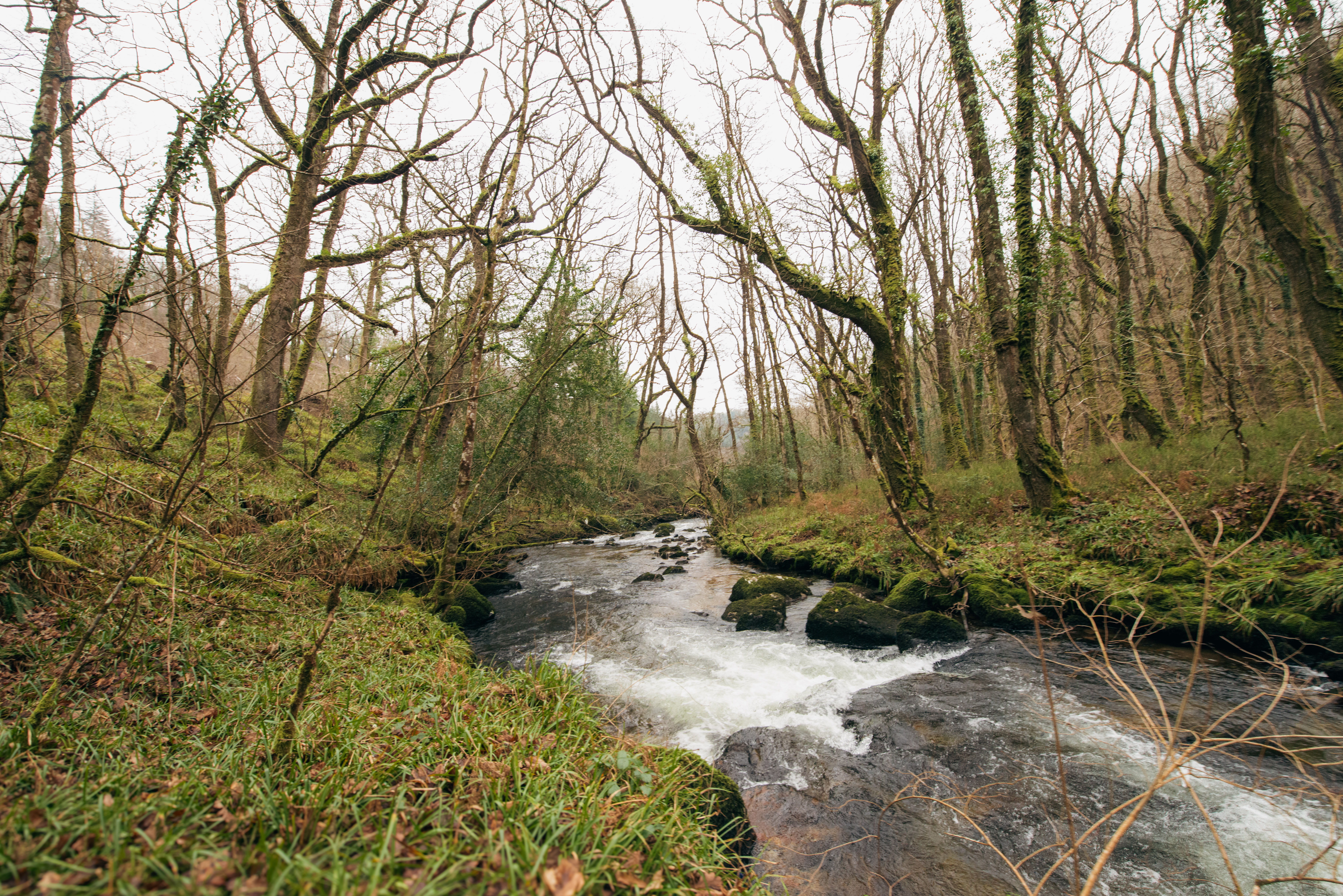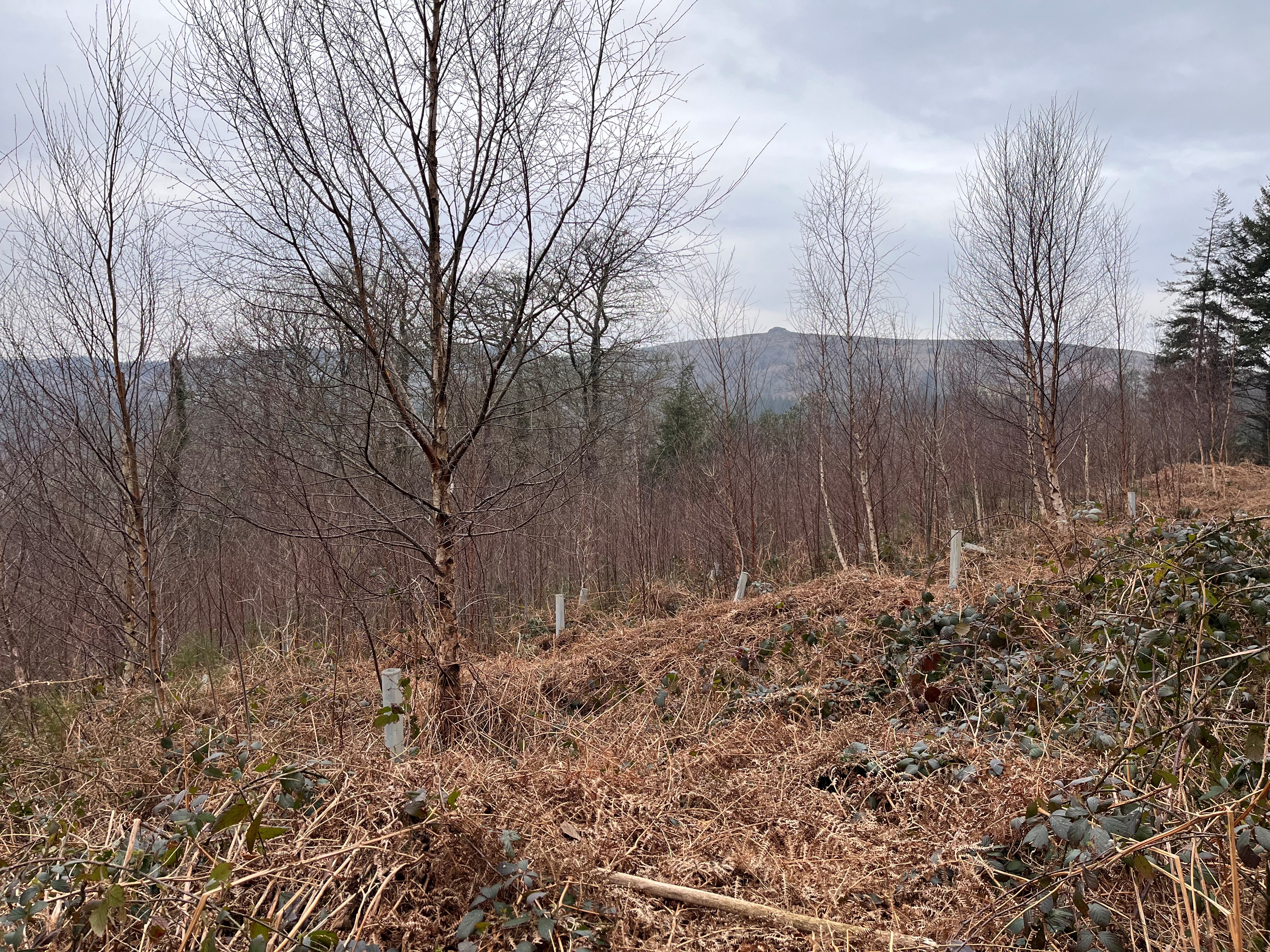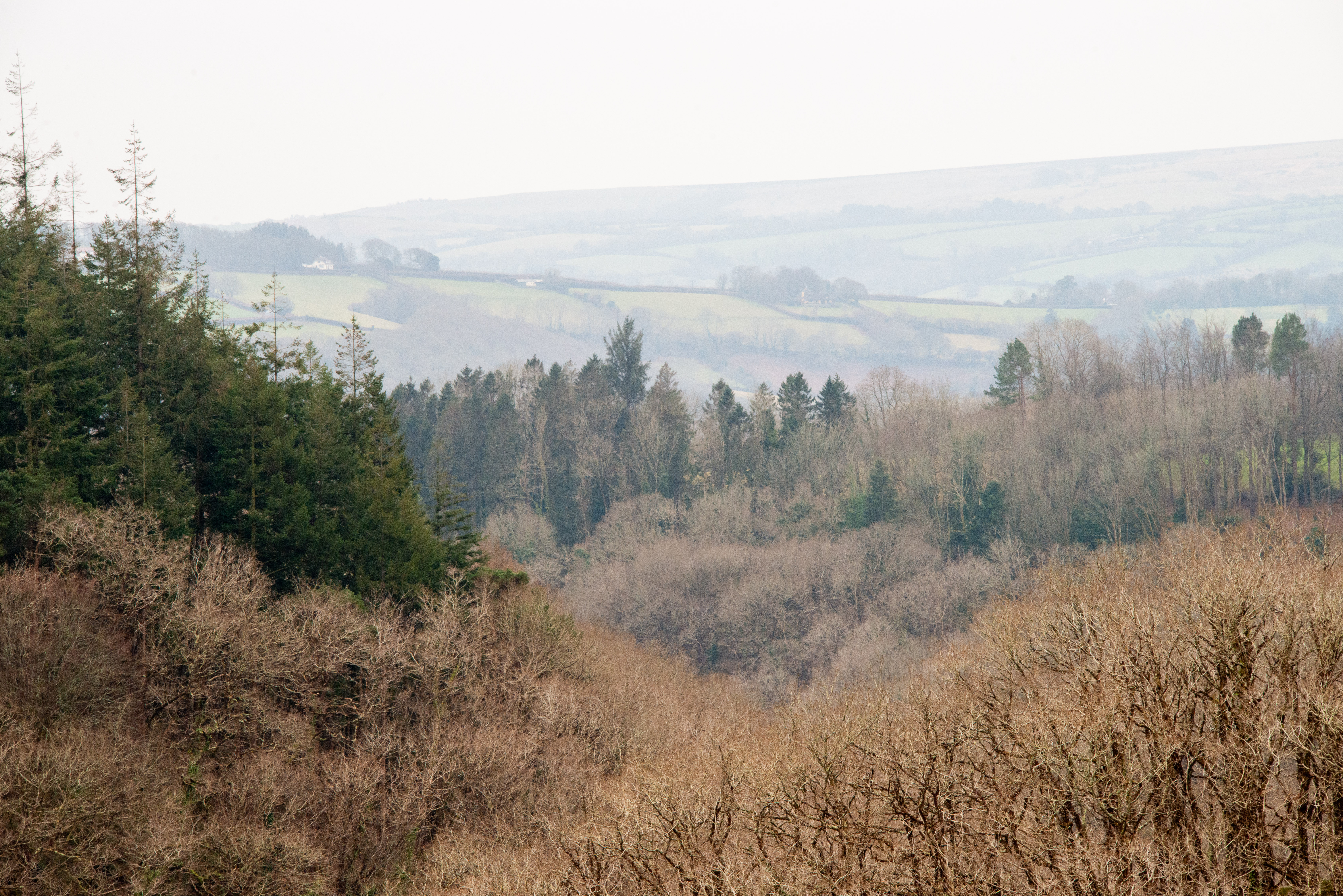Appeal launched to help buy and restore swathe of rare temperate rainforest
The Woodland Trust is looking for support for the purchase of Buckland Wood – the ‘final piece of rainforest jigsaw’ in Devon’s Dart Valley.

A £2.8 million appeal has been launched to buy and restore more than 100 hectares of temperate rainforest, as part of efforts to save the rare habitat.
The Woodland Trust is launching the appeal to secure Buckland Wood in Devon’s Dart Valley, an area home to some of the UK’s last remaining rainforests which are rich in lichens, moss and ferns, and wildlife including bats, otters and dormice.
Atlantic temperate rainforest is a globally rare habitat which once swathed western coasts of England, Wales, Scotland, the island of Ireland and the Isle of Man, but has shrunk from covering a fifth of Britain to just 1%.
These rainforests have been cleared for timber and agriculture, and are now found only in fragments that face risks including invasive species, isolation and climate change, which threatens their unique humid micro-climate.

So conservationists are battling to save, restore, expand and link up the rare habitats to make them healthier and more resilient, boost nature and tackle climate change.
The Woodland Trust has taken advantage of an opportunity to buy the 102-hectare (252-acre) Buckland Wood site before it went on the market, but needs to raise funds to cover the acquisition and restore the woodland, much of which has been managed for decades as commercial conifer forest.
The wood along the east side of the River Dart lies at the heart of a swathe of rainforest in the Dart Valley, and is next to Ausewell Wood, which the Woodland Trust purchased with the National Trust in 2020.
Dave Rickwood, south-west site manager for the Woodland Trust, said the purchase of Buckland was “a really exciting, rare and important chance to own and restore the final piece of a rainforest jigsaw”, bridging the gap to a 256-hectare stretch of the rare habitat.
He described Buckland as having “some fantastic bits of temperate rainforest which really have got some of the most amazing lichen assemblages in them”.
Lichens found in Buckland include the very rare Nevesia sampaiana that has only been found on two oak trees in the UK in the past 25 years – both in the wood – the trust said.
But the woods also contain significant amounts of conifers, so the plan is to gradually remove the non-native trees and allow the native woodland to naturally regenerate, alongside some replanting to give the habitat a boost.
Restoration is already taking place at nearby Ausewell, where non-native species including conifers and rhododendron are being removed, sunlight is being restored to the dormant ancient soils and some areas are being replanted.

The gradual restoration process, taking out a small amount of conifers each year, also produces revenue from the timber, supporting local businesses and suiting sawmills in Dartmoor which do not want to be presented with huge amounts of timber in one go, Mr Rickwood said.
Timber and low grade material from restoration are also being used to restore peatland on Dartmoor by blocking up channels to retain moisture on the moor, slowing the flow down into the valleys and improving the health of the river below.
Work at Ausewell inspired the former owners of Buckland to offer their wood for sale to the Woodland Trust before it went on the market, which Mr Rickwood said would enable the charity to “protect and restore a huge expanse of rainforest”.
The Woodland Trust says donations to its appeal will help revitalise habitats for rare mammals, including bats, pine martens, dormice and otters, and dozens of bird species, and bring back native broadleaf trees that host the rare lichens, ferns, lungworts and mosses of the UK’s rainforest zone.
There will also be natural flood management measures to retain more moisture, improve humidity levels and boost water quality in the Dart, which is home to threatened salmon, sea trout and brown trout.

It is hoped that restoring the woodlands to health will help fight the effects of climate change.
Mr Rickwood told the PA news agency: “A lot of conservation organisations are managing these small parcels in the landscape, but the reality is they’re not big or robust enough to be resilient to what the impacts of a changing climate are going to bring down the line.
“We need to work at scale, and we can do that in part by increasing landholdings.”
The charity also wants to demonstrate forests can be managed in a way that delivers “win-wins”, making them more resilient, more accommodating for species and enabling recreation while giving nature its space, he said.
“If we can help influence other landowners to come on the same journey we are going on restoring habitat like ancient woodland, that’s a much bigger win,” Mr Rickwood said.
He added that people would be making a “tangible, lasting difference”, helping tackle the nature and climate crisis by donating to the appeal.
To support the appeal, people can visit: woodlandtrust.org.uk/buckland





